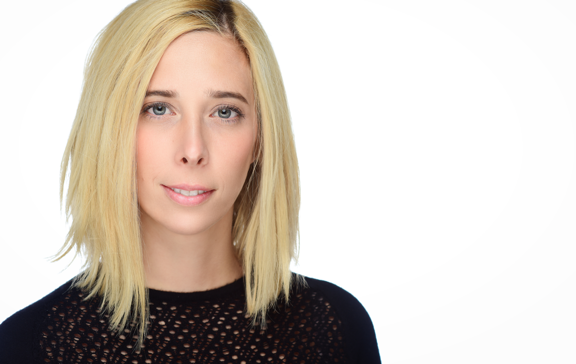Back in 2008, I heard about that Oprah tip — the one where
you make a list of goals on a Post-It and put it on your bathroom mirror. You
are supposed to look at it every morning when you wake up and remind yourself
of the goal. I tried it. On the Post-It, I wrote, “Make a film.” Then underneath, I probably wrote things like “Oscar,” “Emmy,” “Sundance.” I guess my insecure
side was into accolades at the time. It is amazing what six years and a little
bit of perspective can do.
The funny thing is that I had been making stuff that was on
TV for years. They weren’t movies or TV shows, but rather promos for MTV. I
started my career there when I was 22 and began directing. It was the best
place to work — particularly if you like to make stuff. I made promos there for
ten years and met some of the most creative people I’ve ever known. It was a
breeding ground for creativity, and if you didn’t have a side project, then you
weren’t doing enough.
I’d always wanted to make a documentary. It was what I was
passionate about creating and watching. In 2008 a friend introduced me to a
lawyer, Jane Aiken, who was a founder of the Missouri Battered Women’s Clemency
Coalition. They were a group of lawyers from Missouri who represented women
serving extreme prison sentences for killing their abusive husbands. Jane and I
discussed this issue — which I knew very little about at the time — and the
possibility of making a film. She taught at Georgetown Law School, so a group
of MTV friends and I took a small camera package to DC and did an interview
with her.
Jane gave me “home videos” of the incarcerated women — interviews that
the Clemency Coalition had taken as part of their petition to the Missouri governor.
I watched one interview after the next. I couldn’t believe what I was hearing. The
stories were horrifying accounts of abuse, violence, rape, incest and
psychological torture. It seemed inconceivable that these women were in prison
for what could only be described as self-defense. I knew that I’d found my
subject, and this was the film that I wanted to make. I recruited two amazing
producers, Jerelyn Orlandi and Lindsay Nowak, and we began our journey.
Over the next four years I made the film — and in that time
my goals and perspectives on filmmaking, storytelling, social justice, outreach
and perseverance evolved and grew. A pivotal moment for me was my first trip to
prison. I was nervous. The future of
the film was dependent on how well I performed
in this interview. I’d put my own money and time into the project for a year
before I even reached this point. And here it was.
My first interview was with Carlene Borden. She was
incarcerated in Vandalia, Missouri, serving a sentence of 50 years to life for
paying an ex-boyfriend to kill her abusive husband. When I met her, she was
shaking like a leaf. This was the first time she had ever done an interview, and she had been in prison for over 30 years. It was in this moment that I knew I could
never leave this film unfinished. By trusting me to tell their stories, these
women were giving me a tremendous opportunity, and I would not fail them. My
motivation was no longer about what the film could do for me, but about what I
could do with this film.
In less than a week, I will have fulfilled a goal that has
been six years in the making. “The
Perfect Victim” will be on television as part of the documentary series America
Reframed. It is not without a ton of support, favors, donations and faith
that this day has come. To every person who contributed to this film, I will
forever be in your debt.
Maybe I will start putting Post-Its on my mirror again. But
they will no longer be about awards or accolades. They will simply say, “Tell a
story. Make a difference.”
The Perfect Victim
airs on World
Channel on Tuesday, April 14, at 8pm. Go to www.theperfectvictim.com
to learn more about the film.
Elizabeth Rohrbaugh is a director, writer and creator with a passion for telling true stories in a variety of media.







